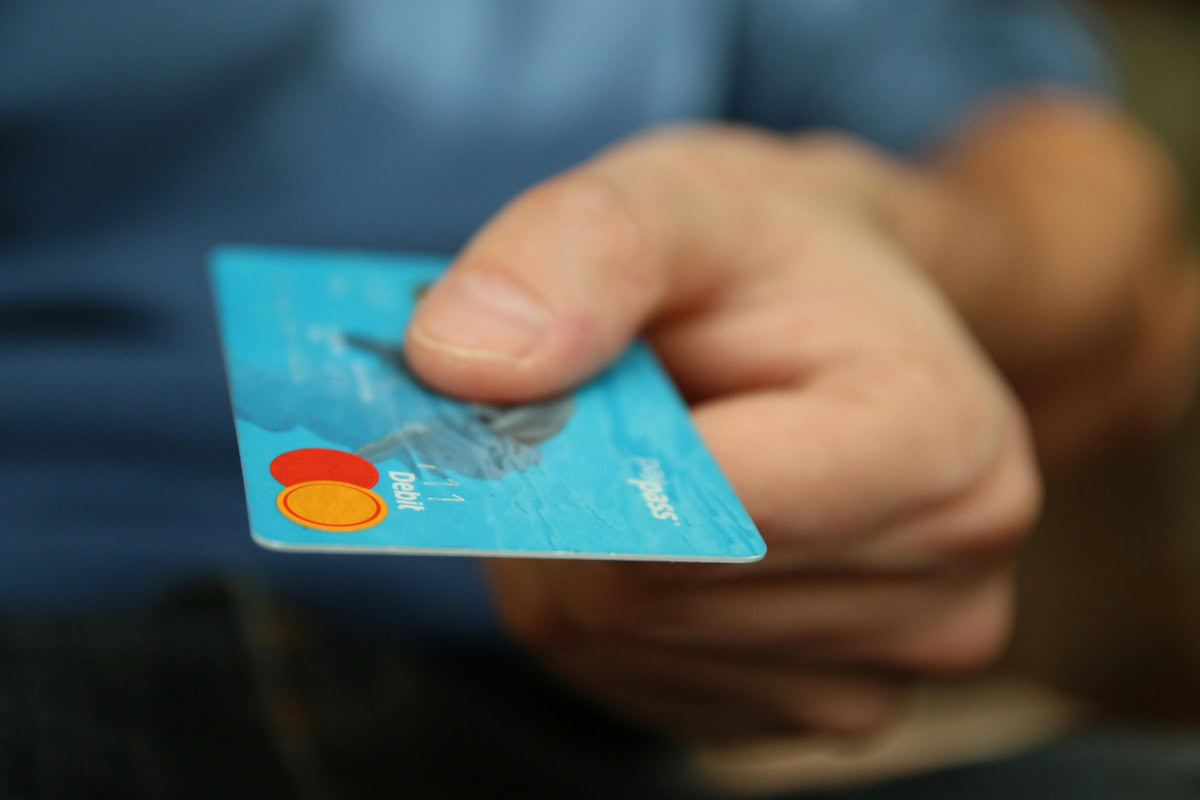What Will Happen To Your Credit Score if You Do Not Manage Your Debt Wisely

Your credit score is an indicator of how you handle your debts. Therefore, managing your debt wisely is exactly how to increase your credit score. So it makes sense that managing it poorly will decrease your credit score.
However, you should be aware of debt criteria that can affect your credit score positively or negatively.
How Does Debt Affect Your Credit Score?
The four main factors that impact your credit score include your payment history, your credit utilization ratio, the age of your accounts, and the number of new credit accounts you open.
Payment History
Your payment history is an important factor in determining your credit score. In fact, your payment history accounts for 35% of your credit score.
Paying payments on time or early helps increase your credit score. Of course, making late payments will negatively impact your credit score.
If you do find that you need to make a late payment on a credit card, keep the payment less than 30 days late if at all possible. Late payments are not reported to the credit bureaus until they are 30 days late. You’ll still receive a late fee and interest charges, but at least the late payment won’t affect your credit.
Credit Utilization Ratio
Your credit utilization ratio is measured by the amount of debt you’ve used compared to what debt is available to you.
For instance, let’s say you’ve got three credit cards:
- Credit card #1 has a $3,000 balance and a $5,000 limit
- Credit card #2 has a $9,000 balance and a $10,000 limit
- Credit card #3 has a $2,000 balance and a $10,000 limit
Your total credit card balance is $14,000. However, you have a total of $25,000 in credit.
In this fictional instance, your credit utilization ratio is 56%. You get that number by dividing the total amount of your credit card balances by the total amount of your credit card limits. (In this case, 14,000/25,000 = .56.)
The three major credit card bureaus (Experian, Equifax and TransUnion) consider a “good” credit utilization ratio to be 30% or under.
By working to keep your credit utilization ratio under 30%, you can help increase your credit score. If that number increases to 30%, 40% or more, your credit score can decrease.
Your credit utilization ratio accounts for 30% of your credit score.
✨ Related: How to Cancel a Credit Card without Lowering Your Credit
Length of Credit History
The age of your credit accounts makes up 15% of your credit score. The older your credit accounts are, the more positively your credit score is impacted.
Conversely, having several new credit accounts can decrease your credit score. For that reason, you’ll want to be cautious about opening new credit accounts and about closing older ones.
Credit Mix
The two kinds of loans are installment loans and revolving lines of credit. Installment loans are loans you take out that have a set payment each month and a set payoff date. Examples would be your car loan or a mortgage.
Revolving lines of credit are credit limits that you can borrow against, pay back, and then borrow some more. The payment amount depends on the current balance, and there is no end date to the arrangement. Examples of this type of loan are credit cards and home equity lines of credit.
Having some of each of these types of loans shows that you can handle both types. Which is good for your credit.
Your credit mix accounts for 10% of your credit score.
How Does Your Credit Score Affect Your Life?
You might be surprised to find out that your credit score can affect more than just your ability to get a loan or credit card.
Companies use credit scores for a variety of reasons, including:
- Whether you qualify for a loan or line of credit
- What interest rate you will pay
- Deciding whether or not to rent a home or apartment to an individual
- What insurance rates you’ll pay (in some states)
- Whether or not you can open a bank account
- Whether or not you can have utility accounts in your name
There are tips you can use in order to be sure you’re managing any debt you have wisely. Some of those tips include:
Create a Budget
A budget is an often-underrated tool that can help you get more bang for your buck. When you create a budget, whether using a budget spreadsheet or one of many free budgeting apps, you get the privilege of telling every dollar you earn where to go.
Without a budget, it’s easy for money to disappear on unplanned expenses such as drive-thru runs and out-of-control big box store visits.
My personal budget favorite is the zero-sum budget. It allows you to create a budget that meets your needs and your wants, all while minimizing waste.
Live Within Your Means
In today’s automated world, it’s become quite easy just to swipe a card and head out with your purchase.
However, with that convenience comes a potential problem: the concept of living within your means can easily be pushed aside.
Having a budget is one way of ensuring you’re living within your means. Paying for fluctuating expenses with cash is another. Envelope budgeting makes paying with cash easy.
If you’re addicted to technology but still want a good tool to help you live within your means, consider using envelope budgeting apps.
Create an Emergency Fund
Having an emergency fund is another great way to manage your debt wisely. Set aside a bit of money each paycheck and create a mindset that the money is untouchable unless absolutely necessary.
That way, if you do have a situation where you can’t pay a loan account on time, and there are no other options, you’ve got some backup funds to help.
Get Out of Debt
Last, but certainly not least, the best way to manage your debt is to not have any debt. Use your budget to create a plan that helps you pay off your debt as soon as possible.
Debt payoff plans such as the debt snowball can help you create that plan. There are great debt snowball spreadsheets that will even tell you how quickly you can pay off your debt.
You may need to curb your spending to pay off your debt, but don’t be scared off by that concept.
What Is a Good Credit Score?
The three major credit bureaus (Experian, Equifax, and TransUnion) have set standards that determine what a good credit score is. On average, the numbers below dictate whether a credit score is poor, fair, good, very good, or exceptional.
- Exceptional: 800-850
- Very Good: 740-799
- Good: 670-739
- Fair: 580-669
- Poor: 300-579
Your goal as a consumer should be to have a credit score that is considered “Good” or above. If your credit score is lower than 670, it may be a good idea to learn which factors affect your credit score and how you can go about working to raise your credit score.
How To Improve Your Credit Score
Your credit score may already have been negatively impacted by debt mismanagement or other factors.
If this is the case, there are steps you can take that can help remedy the situation and improve your credit score.
- Pay your bills on time. Be sure to pay all bills on time, including utility bills. Setting up autopay or making a note on a calendar as to due dates for bills can help.
- Stop accumulating new debt. This may require tightening of your budget, but stopping the debt train can help improve your credit score.
- Pay down your debt. Make extra payments on your debt, even if it’s only a few dollars extra per month. Put any unexpected money toward debt payoff as well.
- Open a secured credit card. Opening a secured credit card and making on-time payments can be helpful in the event that you’ve had a bankruptcy or other credit-disrupting event. This is a good step for building a credit score for the first time as well.
- Clean up any unresolved collections. If you have collections or other non-paid items on your credit report, now is the time to call your creditors and resolve them.
- Look for inventive ways to build your credit score. There are surprising ways you can build your credit, such as building credit by paying your utility bills or using a debit card such as the Extra debit card.
In time, following these steps can help improve your credit score and get your finances on the right track as well.
✨ Related: 12 Ways to Check Your Credit Score for Free
FAQ
How long do items stay on a credit bureau?
Most items stay on your credit bureau for 7-10 years. However, depending on the situation, there may be exceptions.
How long does it take to build or rebuild a credit score?
Depending on how aggressively you work to build or rebuild your credit score, it can take anywhere from six months to two years.
Where can I get a copy of my credit report?
You can get a free copy of your credit reports from all three of the major credit bureaus by visiting annualcreditreport.com.
Is bankruptcy a good way to help me get out of debt?
Bankruptcy can be a way out of debt, but it should be a last resort. The effects on your credit are long-lasting, and the process can be stressful.
Summary
Managing your debt wisely will improve your credit score, while managing it unwisely will damage your credit. Best practices include making your payments on time, keeping your balances low, and not applying for too much credit at once.
Other Posts You May Enjoy:
How to Simplify Your Personal Finances
If you’re like me, your financial “system” can get a little complex. An extra bank account here, an old 401(k) there, it can become very difficult to manage if you don’t take the time to declutter and simplify your finances. Here are a few steps I use to make sure my finances are as easy to understand as possible.
How to Build Credit By Paying Bills
It’s now possible to build credit without a taking out a credit card or loan. Apps such as StellarFi, Cushion, Experian Boost, and Bilt help you track and pay your monthly bills, and report the payments to the credit bureau. But how does it work, and can paying bills really boost your credit? Learn more.
16 Best Banks For Digital Nomads
Digital nomads need a bank that can help them manage their money while traveling. Critical features include low monthly and foreign transaction fees, global ATM access, the ability to pay bills and transfer funds, and responsive customer support. If you’re a digital nomad or planning to become one, here are 16 of the best banks for digital nomads. Learn more.
Understanding Maslow’s Hierarchy of Financial Needs
Psychology was one of my favorite subjects in school. It was like getting an instruction manual for how people worked.…

About Laurie Blank
Laurie Blank is a blogger, freelance writer, and mother of four. She’s psyched about teaching others how to manage their money in a way that aligns with their values and has been quoted in Bankrate.
She’s a licensed Realtor with Edina Realty in Minneapolis, Minnesota (also licensed in Wisconsin too) and has been freelance writing for over six years.
She shares powerful insights on her blog, Great Passive Income Ideas, that will show you how you can create passive income sources of your own.
Opinions expressed here are the author’s alone, not those of any bank or financial institution. This content has not been reviewed, approved or otherwise endorsed by any of these entities.




